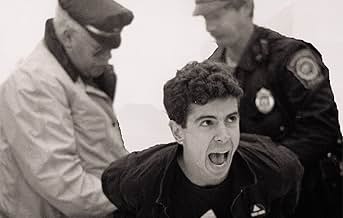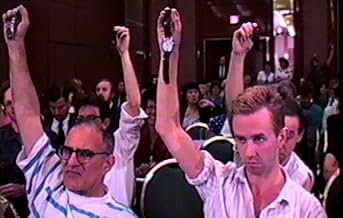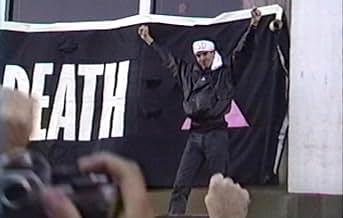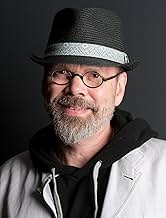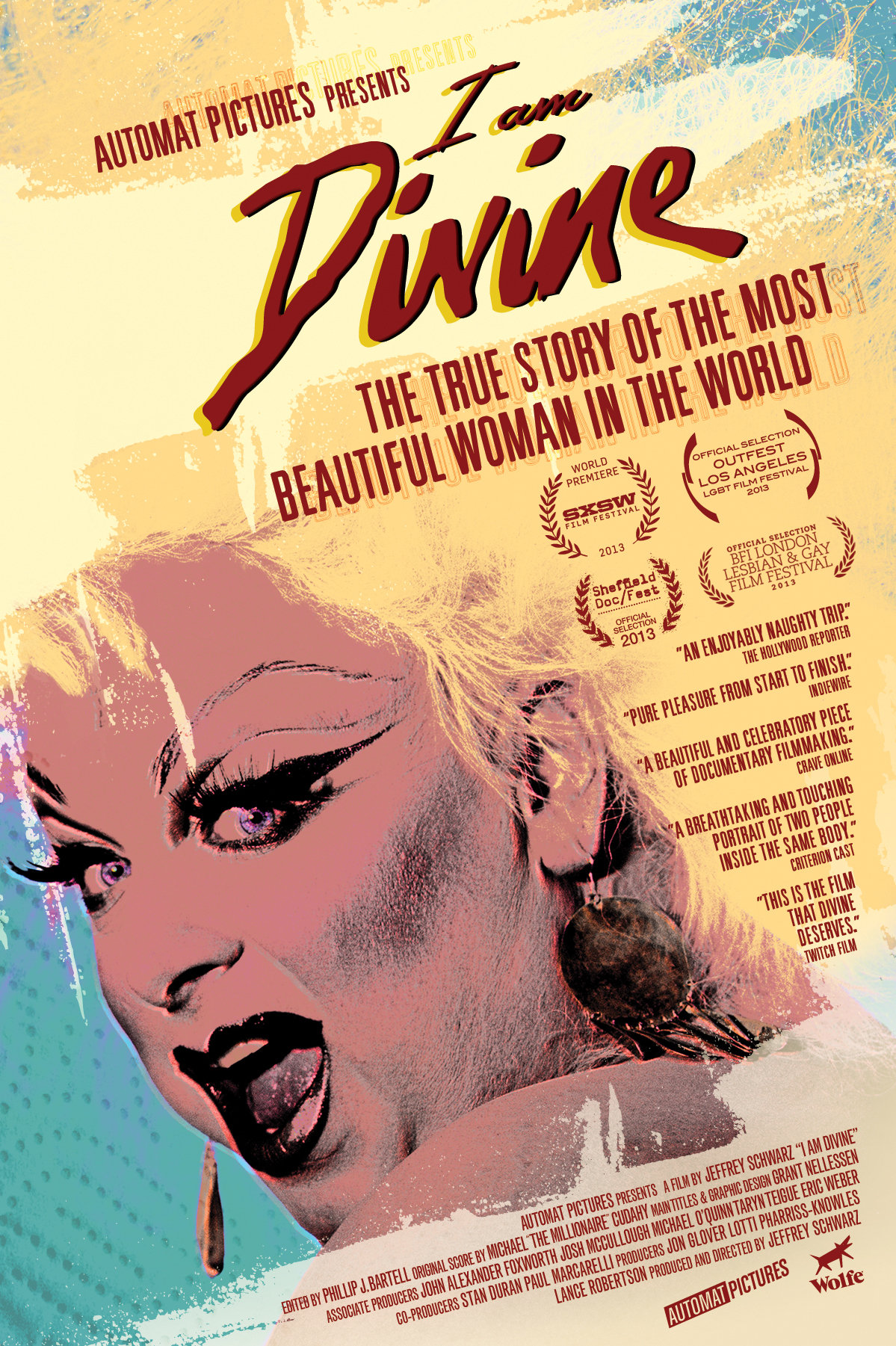VALUTAZIONE IMDb
7,6/10
4462
LA TUA VALUTAZIONE
Aggiungi una trama nella tua linguaThe story of two coalitions -- ACT UP and TAG (Treatment Action Group) -- whose activism and innovation turned AIDS from a death sentence into a manageable condition.The story of two coalitions -- ACT UP and TAG (Treatment Action Group) -- whose activism and innovation turned AIDS from a death sentence into a manageable condition.The story of two coalitions -- ACT UP and TAG (Treatment Action Group) -- whose activism and innovation turned AIDS from a death sentence into a manageable condition.
- Regia
- Sceneggiatura
- Star
- Candidato a 1 Oscar
- 13 vittorie e 21 candidature totali
Iris Long
- Self - Retired Chemist
- (filmato d'archivio)
- (as Iris Long PHD)
Bob Rafsky
- Self - PR Executive
- (filmato d'archivio)
Ed Koch
- Self - Mayor of New York
- (filmato d'archivio)
Barbara Starrett
- Self - AIDS Physician
- (as Dr. Barbara Starrett)
Franke-Ruta Garance
- Self - Teenager
- (as Garance Franke-Ruta)
Mathilde Krim
- Self - AMFAR, The Foundation for AIDS Research
- (as Mathilde Krim PHD)
Jesse Helms
- Self - R - North Carolina
- (filmato d'archivio)
Recensioni in evidenza
How to Survive a Plague (2012)
**** (out of 4)
David France's excellent documentary takes us back in time to see the fight AIDS activists had to go through in order to get where we are today. Through video clips, interviews and other forms of video footage we see how the times changed throughout the years while the main focus of the film is set during the late 80s and early 90s when political indifference and a lack of any plan caused millions of people to die while drugs that might have helped them weren't being given to them. What's so great about this movie is that it uses video footage from throughout the decades to tell its story. It could be media reports, underground videos, appearances by people on talk shows or various other forms of footage that really gives one a terrific idea of this uphill fight. Director France does a rather remarkable job editing the footage together to give the viewer a complete idea of what it was like during these times when it seems no one could agree on what to do next. The film covers the activists hopes for what would happen, the politicians refuses to step in for a variety of reasons and even the Catholic church's controversial statement that condoms were sinful. I thought the film really did do a great job at showing future generations the "war" that these people were pretty much going through in order to try and get something done. Some will argue, perhaps rightfully, that the film is too one-sided since it only gives off one side. I understand this argument and I would have liked to have heard from some of the medical departments on why more wasn't done. Still, HOW TO SURVIVE A PLAGUE is a pretty haunting and dramatic little picture that will certainly be a staple of its subject for years to come.
**** (out of 4)
David France's excellent documentary takes us back in time to see the fight AIDS activists had to go through in order to get where we are today. Through video clips, interviews and other forms of video footage we see how the times changed throughout the years while the main focus of the film is set during the late 80s and early 90s when political indifference and a lack of any plan caused millions of people to die while drugs that might have helped them weren't being given to them. What's so great about this movie is that it uses video footage from throughout the decades to tell its story. It could be media reports, underground videos, appearances by people on talk shows or various other forms of footage that really gives one a terrific idea of this uphill fight. Director France does a rather remarkable job editing the footage together to give the viewer a complete idea of what it was like during these times when it seems no one could agree on what to do next. The film covers the activists hopes for what would happen, the politicians refuses to step in for a variety of reasons and even the Catholic church's controversial statement that condoms were sinful. I thought the film really did do a great job at showing future generations the "war" that these people were pretty much going through in order to try and get something done. Some will argue, perhaps rightfully, that the film is too one-sided since it only gives off one side. I understand this argument and I would have liked to have heard from some of the medical departments on why more wasn't done. Still, HOW TO SURVIVE A PLAGUE is a pretty haunting and dramatic little picture that will certainly be a staple of its subject for years to come.
I really don't understand how this doco only scores a 7.3. It's the most compelling piece of film I have seen in years, I was gripped from the beginning to the end. It is basically about the early fight for treatment research and recognition that HIV sufferers have a disease and were entitled to respect and humanity from the wider community as it was not a punishment from God for a so called "lifestyle choice".
It is structured by piecing together a lot of archive film that is edited so brilliantly that it like watching a scripted film that tells a great story, a film with real stars and characters. The subject matter is based on HIV but what I took away from the film is how people with such a motivation did "act up" and used democracy to achieve an objective. It is compulsive viewing for any interested in any type of campaigning.
My only criticism of the film is it did not fully explore the reason for the early antagonism toward people with the virus and why the medical establishment and governments at that time were slow to act. But in the end I seen a film about a story I did not know about, a story about successful democratic campaign that has saved millions of lives. I now think these early campaigners should have got Nobel recognition. The film is that powerful.
It is structured by piecing together a lot of archive film that is edited so brilliantly that it like watching a scripted film that tells a great story, a film with real stars and characters. The subject matter is based on HIV but what I took away from the film is how people with such a motivation did "act up" and used democracy to achieve an objective. It is compulsive viewing for any interested in any type of campaigning.
My only criticism of the film is it did not fully explore the reason for the early antagonism toward people with the virus and why the medical establishment and governments at that time were slow to act. But in the end I seen a film about a story I did not know about, a story about successful democratic campaign that has saved millions of lives. I now think these early campaigners should have got Nobel recognition. The film is that powerful.
By using (mostly) never before seen archival footage, David France's unflinching documentary "How to Survive a Plague" DOCUMENTS the early epidemic of the AIDS virus in the United States, during a time when it was seen as a death sentence.
With a mixture of video from protests, support rallies and home movies, France portrays actual struggling AIDS victims/activists as their friends and family members begin to go blind and die around them, and the US government does little in way of assistance. France also does a great job of not only showcasing the overwhelming amount of discrimination during the 80's and 90's, which altogether ostracized anybody with AIDS or people that had any linkage to the gay communities, but succeeds in his attempts to dissect the human condition, by showing how far a determined group of people are willing to go for change.
The rest of the footage, which shows government officials such as former Senator Jesse Helms, former President Ronald Regan and former President George Bush Sr. is maybe the most shocking aspect of this film; as they come off as negligent and at times so blatantly prejudiced, that it's disturbing to think how everything depicted here took place only between 20 and 30 years ago.
Beginning in New York with the denial of the AIDS epidemic by former New York Mayor Ed Kotch, to the introduction of the highly toxic drug AZT (the most expensive drug on the market at the time, and the only one used to prolong the life of AIDS patients) to the Roman Catholic Church condemning the use of condoms, and ending with the evolution of ACT UP and TAG (Treatment Action Group) a group of activists (most of whom had the AIDS virus themselves) who revolutionized the way AIDS was treated, turning it into a manageable condition; the importance of this film lies in its documentation of a disenfranchised people during a time in American history that isn't broached in the classroom. But equally as interesting as the subject matter, is how creatively this documentary is put together. This archival footage format is truly an ingenious way to tell a narrative, really working on an almost purely visceral level to capture the times and atmosphere of a real life American revolution, in a way not many documentaries have the ability to do.
Final Thought: "How to Survive A Plague" is not only an informative, fascinating, and sure to be award winning film, but also one of the most powerful documentaries of 2012. There's not much more I can say about this documentary, other than that actually sitting down and witnessing what this film has to say, for yourself will undoubtedly create a deeper impact and elicit more of an emotional response than any mere words can say.
Written by Markus Robinson, Edited by Nicole I. Ashland
Follow me on Twitter @moviesmarkus
With a mixture of video from protests, support rallies and home movies, France portrays actual struggling AIDS victims/activists as their friends and family members begin to go blind and die around them, and the US government does little in way of assistance. France also does a great job of not only showcasing the overwhelming amount of discrimination during the 80's and 90's, which altogether ostracized anybody with AIDS or people that had any linkage to the gay communities, but succeeds in his attempts to dissect the human condition, by showing how far a determined group of people are willing to go for change.
The rest of the footage, which shows government officials such as former Senator Jesse Helms, former President Ronald Regan and former President George Bush Sr. is maybe the most shocking aspect of this film; as they come off as negligent and at times so blatantly prejudiced, that it's disturbing to think how everything depicted here took place only between 20 and 30 years ago.
Beginning in New York with the denial of the AIDS epidemic by former New York Mayor Ed Kotch, to the introduction of the highly toxic drug AZT (the most expensive drug on the market at the time, and the only one used to prolong the life of AIDS patients) to the Roman Catholic Church condemning the use of condoms, and ending with the evolution of ACT UP and TAG (Treatment Action Group) a group of activists (most of whom had the AIDS virus themselves) who revolutionized the way AIDS was treated, turning it into a manageable condition; the importance of this film lies in its documentation of a disenfranchised people during a time in American history that isn't broached in the classroom. But equally as interesting as the subject matter, is how creatively this documentary is put together. This archival footage format is truly an ingenious way to tell a narrative, really working on an almost purely visceral level to capture the times and atmosphere of a real life American revolution, in a way not many documentaries have the ability to do.
Final Thought: "How to Survive A Plague" is not only an informative, fascinating, and sure to be award winning film, but also one of the most powerful documentaries of 2012. There's not much more I can say about this documentary, other than that actually sitting down and witnessing what this film has to say, for yourself will undoubtedly create a deeper impact and elicit more of an emotional response than any mere words can say.
Written by Markus Robinson, Edited by Nicole I. Ashland
Follow me on Twitter @moviesmarkus
Seeing this title I was expecting something of an apocalyptic, end-of- the-world zombie type film. In fact, this documentary was far truer, exploring a disease which has cost many lives. One might say I have an interest in LGBT causes and maybe this is why I decided to see this documentary, but AIDS is not exclusive to any community.
This documentary starts in the early 80's in New York where young men and women are dying of AIDS. There is no treatment and they are even refused in the hospitals. Each with their individual pain couldn't do much so they organized and created "ACT UP" whose main focus was to be an activist group, which through civil disobedience would bring attention, awareness, and most importantly a cure to AIDS. The documentary retraces some of their fights and quarrels mostly through archives but also with some more recent interviews. It covers some of the darkest hours before the discovery of the lucky combination that would prolong the lives of many, but would come too late to save those of many more.
I think the topic is one of the most important there is. It feels so distant but I can actually remember hearing about a treatment to AIDS back then. It meant very little to me at the time. I can't say that I really loved the way the documentary was going about things but I liked the substance very much. It is very scary to think back and imagine those people taking whatever medication that was on trial simply because at that point it couldn't have done more harm.
While I think activism is double-edged blade and can sometimes backfire, it seems that this very activism has saved many lives and the alerted politicians who at first refused to talk about how many lives AIDS had taken. There are some very emotional personal stories here, and if my rating was based solely on the people in this documentary, I'd give them all a 10 for their courage and perseverance through this tremendous pain.
I liked: The topic. Historically important.
I disliked: The shaky archive footage, the constant shouting and confrontations. It had only one sequence to explain the actual biological/chemical aspects, which I felt were important and deserved more screen time.
74/100 A little over 20 years ago, there were presidents who would go on television and say that AIDS has behavioral causes that should be looked at. This documentary could definitely teach them a thing or two.
This documentary starts in the early 80's in New York where young men and women are dying of AIDS. There is no treatment and they are even refused in the hospitals. Each with their individual pain couldn't do much so they organized and created "ACT UP" whose main focus was to be an activist group, which through civil disobedience would bring attention, awareness, and most importantly a cure to AIDS. The documentary retraces some of their fights and quarrels mostly through archives but also with some more recent interviews. It covers some of the darkest hours before the discovery of the lucky combination that would prolong the lives of many, but would come too late to save those of many more.
I think the topic is one of the most important there is. It feels so distant but I can actually remember hearing about a treatment to AIDS back then. It meant very little to me at the time. I can't say that I really loved the way the documentary was going about things but I liked the substance very much. It is very scary to think back and imagine those people taking whatever medication that was on trial simply because at that point it couldn't have done more harm.
While I think activism is double-edged blade and can sometimes backfire, it seems that this very activism has saved many lives and the alerted politicians who at first refused to talk about how many lives AIDS had taken. There are some very emotional personal stories here, and if my rating was based solely on the people in this documentary, I'd give them all a 10 for their courage and perseverance through this tremendous pain.
I liked: The topic. Historically important.
I disliked: The shaky archive footage, the constant shouting and confrontations. It had only one sequence to explain the actual biological/chemical aspects, which I felt were important and deserved more screen time.
74/100 A little over 20 years ago, there were presidents who would go on television and say that AIDS has behavioral causes that should be looked at. This documentary could definitely teach them a thing or two.
¨Act Up. Fight Back. Fight AIDS.¨
Director David France does an impressive job of gathering information, data, news footage, and home videos during the decade long fight of the activist group known as ACT UP to find a way to stop the AIDS epidemic in this well constructed documentary. The film succeeds in showing us the anger and outrage that these men went through to stop government inaction on such a widespread plague that was killing off millions of people in the world. I was impressed with this chronological history that David France was able to put together in a brilliant way. My only complaint is that some things were repetitive as we see one rally after another in protest against the government. ACT UP assembled to fight and protest against the little support given by the Reagan and Bush administration, against the FDA which was taking too long to approve drugs that several patients needed, and the Catholic Church which condemned them. The documentary is full of anger, and there are several emotional moments as we see what some of these men had to go through in their struggle with the disease. During the 80's having AIDS meant you had almost a 100% chance of dying; it was practically a death sentence. This made the homophobic atmosphere grow in communities where several hospitals neglected to give these patients health care. France follows the activist group, ACT UP, from its forming moments to its divisive ones, and finally to the goals they accomplished through some breakthroughs. It was not an easy fight, but their voice was heard. This is the story of how some of these men were able to survive the plague.
The story begins six years after the AIDS epidemic has begun to spread. It's 1987 and a group of activists known as ACT UP decide to get together in New York City to protest against the way the AIDS epidemic has been treated. They form a coalition for healthcare after over half a million people had died of AIDS around the world. We follow the protests taking place against some government officials and the activists finally begin to get their voiced heard. David France isn't afraid of sharing some strong images with the viewer as he shows everything in a very raw manner. Their next rallies take place over the country protesting against gay hate, and later we see them protest against the FDA for taking too much time to approve drugs. This leads some of the activists to begin receiving some underground drug treatments in order to try to expand their life as the sickness begins taking a toll on them. They begin to study and discover what the disease really was and fight for possible solutions as they form committees in order to understand AIDS better. They also form support groups for those people who had fear of coming out during that dangerous time. They studied several ways to slow down the virus, but as time passed more and more deaths were taking place. The film follows the decade long fight of ACT UP from 1987 to 1996 where they finally reached a breakthrough, although it came at a great cost.
Some of the important things the AIDS community accomplished were rising consciousness of what the disease really was, they made AIDS become an important issue during the 1992 presidential campaign, and they finally found drugs that helped slow down the effects of the virus. It wasn't an easy fight as we feel the anger some of these men had towards the ineptness of the government of the time and the loss of some of their close friends and relatives. This was a very insightful story and part of American history that needed to be told. France did an excellent job at putting together all the footage and delivering a powerful and emotional documentary. It did drag a little, but it was a strong film.
http://estebueno10.blogspot.com/
Director David France does an impressive job of gathering information, data, news footage, and home videos during the decade long fight of the activist group known as ACT UP to find a way to stop the AIDS epidemic in this well constructed documentary. The film succeeds in showing us the anger and outrage that these men went through to stop government inaction on such a widespread plague that was killing off millions of people in the world. I was impressed with this chronological history that David France was able to put together in a brilliant way. My only complaint is that some things were repetitive as we see one rally after another in protest against the government. ACT UP assembled to fight and protest against the little support given by the Reagan and Bush administration, against the FDA which was taking too long to approve drugs that several patients needed, and the Catholic Church which condemned them. The documentary is full of anger, and there are several emotional moments as we see what some of these men had to go through in their struggle with the disease. During the 80's having AIDS meant you had almost a 100% chance of dying; it was practically a death sentence. This made the homophobic atmosphere grow in communities where several hospitals neglected to give these patients health care. France follows the activist group, ACT UP, from its forming moments to its divisive ones, and finally to the goals they accomplished through some breakthroughs. It was not an easy fight, but their voice was heard. This is the story of how some of these men were able to survive the plague.
The story begins six years after the AIDS epidemic has begun to spread. It's 1987 and a group of activists known as ACT UP decide to get together in New York City to protest against the way the AIDS epidemic has been treated. They form a coalition for healthcare after over half a million people had died of AIDS around the world. We follow the protests taking place against some government officials and the activists finally begin to get their voiced heard. David France isn't afraid of sharing some strong images with the viewer as he shows everything in a very raw manner. Their next rallies take place over the country protesting against gay hate, and later we see them protest against the FDA for taking too much time to approve drugs. This leads some of the activists to begin receiving some underground drug treatments in order to try to expand their life as the sickness begins taking a toll on them. They begin to study and discover what the disease really was and fight for possible solutions as they form committees in order to understand AIDS better. They also form support groups for those people who had fear of coming out during that dangerous time. They studied several ways to slow down the virus, but as time passed more and more deaths were taking place. The film follows the decade long fight of ACT UP from 1987 to 1996 where they finally reached a breakthrough, although it came at a great cost.
Some of the important things the AIDS community accomplished were rising consciousness of what the disease really was, they made AIDS become an important issue during the 1992 presidential campaign, and they finally found drugs that helped slow down the effects of the virus. It wasn't an easy fight as we feel the anger some of these men had towards the ineptness of the government of the time and the loss of some of their close friends and relatives. This was a very insightful story and part of American history that needed to be told. France did an excellent job at putting together all the footage and delivering a powerful and emotional documentary. It did drag a little, but it was a strong film.
http://estebueno10.blogspot.com/
Lo sapevi?
- Citazioni
Larry Kramer: [addressing to an angry protester] Plague! We're in the middle of a fucking plague, and you behave like this? ACT UP has been taken over by a lunatic fringe!
- ConnessioniFeatured in L'85° Academy Awards (2013)
- Colonne sonoreThat's Us/Wild Combination
Performed & Arranged by 'Superhuman Happiness'
Written by Arthur Russell (as Charles Arthur Russell Jr.) (ASCAP)
Courtesy of Domino Publishing Company Ltd.
I più visti
Accedi per valutare e creare un elenco di titoli salvati per ottenere consigli personalizzati
- How long is How to Survive a Plague?Powered by Alexa
Dettagli
- Data di uscita
- Paese di origine
- Siti ufficiali
- Lingua
- Celebre anche come
- Làm thế nào để sống sót trong bệnh dịch
- Aziende produttrici
- Vedi altri crediti dell’azienda su IMDbPro
Botteghino
- Lordo Stati Uniti e Canada
- 132.055 USD
- Fine settimana di apertura Stati Uniti e Canada
- 28.250 USD
- 23 set 2012
- Lordo in tutto il mondo
- 132.055 USD
Contribuisci a questa pagina
Suggerisci una modifica o aggiungi i contenuti mancanti

Divario superiore
By what name was How to Survive a Plague (2012) officially released in India in English?
Rispondi




